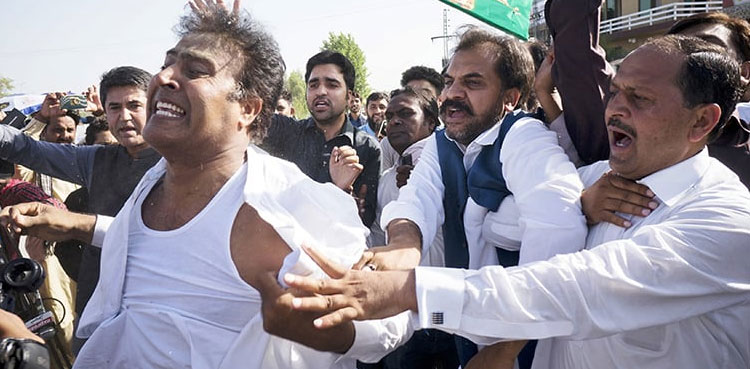Democracy In Pakistan
- By Web Desk -
- Mar 03, 2023

By Rameez Ansari: Despite being termed a democratic state, Pakistan pays lip service to democratic beliefs and norms. The difficulty of reconciling the idea of real democracy and Pakistani socio-political mores is almost impossible to remove.
Pakistan’s system viewed from the angle of adhering to the requirements of a democratic state is most evident in the failure to establish a functioning constitution or hold regular and consequential elections, both widely recognized requirements for democracy.
Although the idea of Pakistan included a nominally democratic country and there was agreement on the term, pressure began building to abridge or abort democracy. Most of the key civilian democratic stakeholders in Pakistan acknowledged and respected democracy and wished Pakistan to be democratic but they were not willing to make it so.
The segments that were and are not convinced by the essence of democracy include the country’s military which treat democracy in its abstract form but found it troubling in practice and never shied away from expressing its skepticism about the entire democratic ideals.
They also, overtly as well as covertly, aimed at aligning with segments that openly opposed democratic conduct and maligned the lack of discipline inherent in democratic consensual building mechanics. In tandem with the coercive apparatus of the state, the civilian bureaucrats tended to equate democracy with civilian governments in which they played a major role but tried to preserve their special position in the governance system and resisted compromising.
The liberal middle class did advocate democracy in theory but it also favored authoritarian rule that went against the spirit of democratic perception. The fact of the matter is that many groups in Pakistan lacked even a nominal commitment to democratic forms, let alone substance.

Dismissive Of Democracy
The large landowners and rural elites are dismissive of democracy and many favored a single-dimensional authoritarian dispensation that invariably tilted towards taking care of their interests. Such groups were and are more than willing to work with military rule and never hide their preference. They always rush to join the military rule and consider it imperative to preserve their influence confirming their perennial skepticism about democratic governance.
As for some pressure groups, most opposed this Western-imposed institution, and many were and are more interested in securing their narrow interests. They also perceive that their conservative and ultra-right views and designs are served much better in authoritarian rule though Pakistan’s history is replete with instances where clashes occurred between the both.
Interestingly what has now come to the fore clearly is that Pakistan’s international supporters were ambivalent about democracy too. The American agenda was clear a pro-Western, stable, prosperous, and democratic Pakistan was all desirable but precisely in that order.
When democracy threatened to remove a leadership that was against Western ambitions, its diplomatic representatives reiterated this priority to Pakistanis and for decades got a hearing it is a well-known fact that most Western ambassadors over there were rated to be major participants in the Pakistani political process even when they did not seek such influence.
It somehow happened that these ambassadors were pulled in and were constrained to play their rather dubious role. Though the country was created through democratic means yet the democratic process was badly disrupted by a military takeover just 11 years after its inception.

Disinterest In Democracy In Pakistan
Before that however democratic norms and practices were deeply eroded from independence in 1947 when in 1954 the governor-general ordered the police to bar the members of the Constituent Assembly from a meeting where they were going to vote on the draft constitution approved at the assembly’s previous session.
Pakistan had no shortage of talented politicians then, and they did not lack political and parliamentary experience but they were disunited on the question of a constitution as the assembly’s Bengali members, coming from the one region of Pakistan that had the most experience with parliamentary government, were especially at odds over the need for a new constitution.
It was at this juncture that some Pakistanis started arguing that Pakistan was not ready for real democracy and could only function as a tutored state that for all intentions was really an extension of the British Raj. Unsure of their political base, the non-democratic elements of the country were unwilling to give democracy a chance and so began Pakistan’s long experiment with autocracy and oligarchy, with democratic tendencies bursting through from time to time.
The autocratic rule was often justified on the pretext that it was a state under external pressure and in internal disarray having no choice but to compromise on such niceties as a constitution. This perception was strengthened by subsequent judicial decisions and the governance gradually became ad-hoc with non-democratic forces becoming dominant over time. The disinterest in democracy is gradually getting intensified and it requires plenty of efforts to re-energize the democratic intent.
